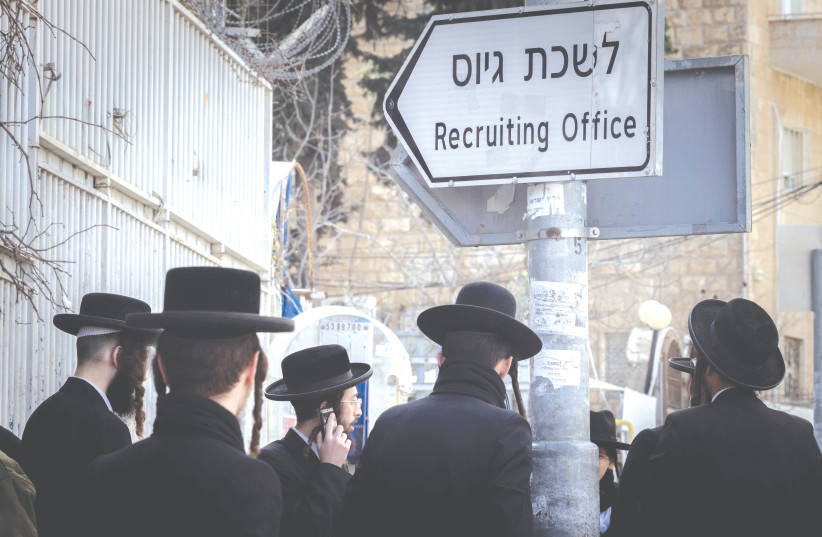Immediately upon its formation, Prime Minister Benjamin Netanyahu's current government became a nightmare for Israel's democratic-liberal camp. The "right-wing bloc" coalition, consisting of an extreme right-wing faction and an ultra-Orthodox left-wing faction, sparked real fear with its aspirations to reform the power distribution among governmental institutions.
After almost a year of protests, tension, and political paralysis, on October 7, Israeli citizens awoke to a security nightmare beyond imagination. This nightmare continues to unfold and threatens to expand towards even more dangerous fronts.
Amid the war, the ultra-Orthodox public woke up to their worst scenario: the legal status of yeshiva students was revoked, requiring them to enlist in the IDF.
While it is difficult to define the ultra-Orthodox situation as a nightmare compared to Israel's security issues, from their perspective, it is the most severe threat to their social-community-religious structure, the fastest-growing sector in Israel and the Western world.
The ultra-Orthodox dilemma
The demographic growth of the ultra-Orthodox sector has been enhanced by government support and a lifestyle that maintains a tight community framework. These vulnerabilities are currently targeted, as the community faces a choice between two bad options: giving up government support or enlisting yeshiva students in the IDF, exposing them to "spiritual danger," breaking the community framework, and assimilating into Israeli society.

The issue of enlisting yeshiva students seems solvable if the ultra-Orthodox gave up their attachment to Netanyahu and their membership in the "right-wing bloc." They might reach a compromise with the anti-Netanyahu camp. However, such a concession requires a historic political decision and maneuvering abilities currently beyond their capabilities. If they bring down Netanyahu's government due to the conscription crisis, they may find themselves without support from the "right-wing bloc" and an agreement with the anti-Netanyahu government.
For the ultra-Orthodox, the dilemma intensifies as conservative factions view attempts to draft yeshiva students as an effort to dismantle the ultra-Orthodox public and secularize young ultra-Orthodox individuals. These factions contributed to the failure of previous attempts to resolve the issue and now hinder the ultra-Orthodox leadership in finding a way out of the tangle.
What will Netanyahu do?
Netanyahu must maneuver between three battles: the legal-political battle, the war management battle, and the ultra-Orthodox conscription battle.
In the legal-political battle, Netanyahu has so far suffered sweeping losses, making it difficult to maneuver the conscription issue. The war management battle adds fuel to the fire, with Defense Minister Yoav Gallant opposing any solution to the conscription issue, besides the existing tension between the figures around the legal crisis and war management crisis.
If Netanyahu could maneuver each of these battles separately and lead them to a solution, in the current situation, the three battles—legal, security, and ultra-Orthodox—feed into each other. The struggle over ultra-Orthodox conscription proves particularly dramatic due to its potential to cause the disintegration of Netanyahu's dream government, which has turned into a nightmare for him, his political partners, and all Israeli citizens.
This is how Netanyahu's ultra-Orthodox policies backfired, creating turmoil in Israel.
Eli Dan is a journalist at Kikar HaShabbat and a project manager at the Real Time Data Institute.
